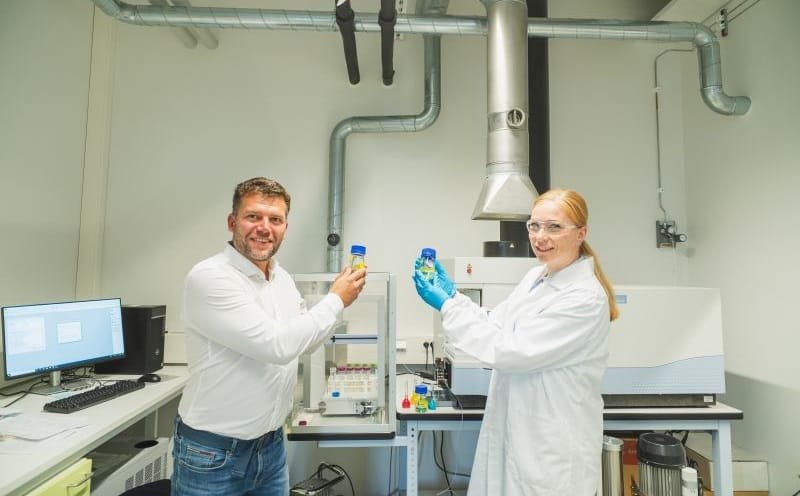The Flexible Clean Propulsion Technologies (Flex-CPT) project consortium, spearheaded by the University of Vaasa, is embarking on an ambitious initiative to innovate cleaner and more flexible solutions for both maritime transport and off-road machinery. With a robust budget of €18 million, the consortium aims to significantly reduce the dependency on single fuel types by advancing technologies that enable the use of zero- and low-carbon fuels, ultimately striving for up to 100% reduction in greenhouse gas emissions.
Table of Contents
Flex-CPT Project Overview and Goals
The Flex-CPT project will focus on several key areas, including:
- Flexible hardware design: Developing adaptable hardware solutions that can efficiently accommodate various fuel types.
- Smart combustion control: Implementing advanced combustion techniques to optimize fuel efficiency and emissions.
- Efficient thermal management: Enhancing temperature control mechanisms to support cleaner combustion processes.
- Adaptive emission and hybrid energy management: Creating systems that dynamically adjust to varying fuel types and operational demands.
Professor Maciej Mikulski, who leads the project, emphasizes that effective decarbonization requires embracing a spectrum of zero-carbon fuel options, including hydrogen and ammonia, alongside established low-carbon fuels such as methane, methanol, and bio- and renewable diesel. This ambitious multi-fuel integration represents a significant technological challenge for powertrain development.
Consortium Partners
The Flex-CPT consortium is a collaborative effort that includes a diverse array of research organizations and companies, such as:
- University of Vaasa
- Tampere University
- Aalto University
- Åbo Akademi University
- Lappeenranta-Lahti University of Technology (LUT)
- VTT Technical Research Centre of Finland
- University of Turku
- University of Oulu
- Wärtsilä Finland Oy
- AGCO Power Oy
- Meyer Turku Oy
- Proventia Oy
- Bosch Rexroth Oy
- Hycamite TCD Technologies Oy
- Lumikko Oy
- Meriaura Oy
The project also involves international cooperation, engaging 12 international partners from various countries, and is aligned with initiatives led by Wärtsilä’s Zero Emission Marine program and Meyer Turku’s NEcOLEAP program.
Industry Impact
Wärtsilä‘s Director of Research & Technology Development, Jonas Åkerman, expressed enthusiasm for the project, stating that it represents a pivotal step towards achieving their Zero Emission Marine vision. The consortium’s advancements in flexible, clean propulsion technologies will aid the industry in meeting its emissions reduction targets for 2030 and 2050, thereby promoting a more sustainable maritime sector.
Kari Aaltonen, product development director at AGCO Power, highlighted the significance of this project in developing a new generation of carbon-neutral and low-carbon machines. He noted the dual benefits of this initiative: not only will it advance technological solutions, but it will also enhance knowledge sharing and expertise development among participating entities.
Previous Achievements and Future Commitments
The Flex-CPT initiative builds on the success of the Clean Propulsion Technologies project, which has positioned Finland as a leader in powertrain solutions for marine and off-road applications. Minna Martikainen, Rector of the University of Vaasa, stated that this is the largest research project the university has ever led, reinforcing its commitment to developing sustainable solutions and addressing complex societal challenges through innovative research.
Funding and Support
The Flex-CPT project is primarily funded by Business Finland, with additional contributions from participating companies and research organizations. Kari Kuokkanen, Chief Funding Advisor, and Tero Ijäs, Ecosystem Manager from Business Finland, remarked on the project’s potential to strengthen Finland’s position in the global market for emission-free combustion engine development.
Innovative Research Plan
The Flex-CPT consortium is poised to deliver 33 innovations, focusing on areas such as:
- Fuel reforming-based reactivity on demand
- Adaptive aftertreatment deposit formation control
- Thermal management of hybrid systems
These innovations will utilize fuel-agnostic combustion and aftertreatment technologies, supplemented by electrification to incorporate five enabling fuel categories across two adaptable engine platforms. This flexibility will cater to diverse power demands in both marine and off-road transport sectors with minimal hardware modifications.
As the project progresses, the Flex-CPT consortium aims to establish a realistic path for the Finnish powertrain industry towards carbon neutrality, shaping the future of both maritime and off-road sectors for years to come.
Source University of Vaasa

